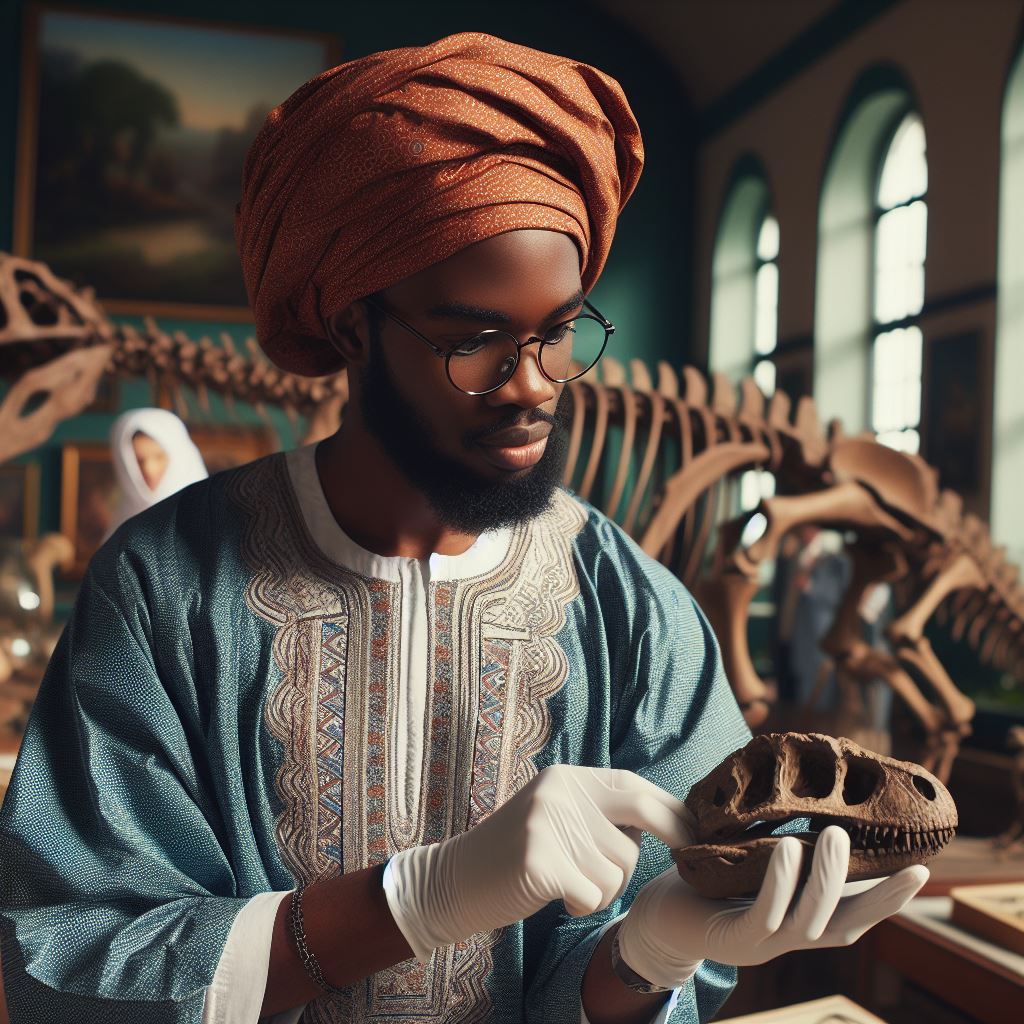Introduction
Anthropology research in Nigeria delves into the rich tapestry of its diverse cultures, traditions, and societal dynamics. This discipline offers invaluable insights into the complexities of Nigerian society, ranging from its historical roots to contemporary challenges.
Anthropology Research in Nigeria: A Brief Overview
Nigeria, with its multitude of ethnic groups and languages, provides a fertile ground for anthropological exploration. Researchers delve into various aspects, including kinship systems, religious practices, economic structures, and political institutions.
Through ethnographic studies, anthropologists unravel the intricacies of Nigerian communities, shedding light on their customs, beliefs, and social interactions.
Importance of Funding for Anthropology Research
Funding serves as the lifeblood of anthropology research in Nigeria, enabling scholars to conduct rigorous investigations and contribute significantly to academic discourse.
Without adequate financial support, research endeavors may be hampered, limiting the scope and depth of inquiries.
Moreover, funding facilitates the acquisition of essential resources, such as equipment, travel expenses, and research assistants, essential for conducting fieldwork and data analysis.
Ensuring Continuity of Research
Sustainable funding mechanisms are essential for ensuring the continuity of anthropology research in Nigeria. Long-term projects require consistent financial backing to maintain momentum and address evolving research questions.
By fostering partnerships with governmental agencies, non-profit organizations, and academic institutions, researchers can secure sustainable funding streams, thereby safeguarding the continuity of their work.
Supporting Diverse Research Initiatives
Funding opportunities in anthropology should embrace the diversity of research initiatives, accommodating projects across various subfields and thematic areas.
From archaeological excavations to ethnographic studies, each research endeavor contributes uniquely to our understanding of Nigerian society.
Thus, funding agencies should adopt inclusive policies that support a wide spectrum of research interests, fostering innovation and interdisciplinary collaboration.
Empowering Indigenous Researchers
Investing in local talent is crucial for the advancement of anthropology research in Nigeria.
By empowering indigenous scholars through funding opportunities, we not only amplify diverse perspectives but also foster the growth of the discipline within the country.
Indigenous researchers possess invaluable cultural insights and linguistic proficiency, enriching the research landscape with nuanced understandings of Nigerian communities.
Promoting Ethical Research Practices
Funding agencies play a pivotal role in promoting ethical research practices within the field of anthropology.
Grants should be contingent upon adherence to ethical guidelines, ensuring the protection of research participants’ rights and the responsible dissemination of findings.
By prioritizing ethical considerations, funding initiatives uphold the integrity of anthropology research and cultivate trust within local communities.
In fact, funding opportunities are indispensable for advancing anthropology research in Nigeria.
By providing financial support, fostering sustainability, embracing diversity, empowering indigenous scholars, and promoting ethical practices, funding agencies contribute significantly to the vibrancy and relevance of anthropological inquiry in Nigeria.
As we navigate the complexities of Nigerian society, robust funding mechanisms serve as catalysts for transformative research endeavors, enriching our understanding of the human experience.
Available funding sources for anthropology research in Nigeria
Government grants and scholarships
When it comes to funding opportunities for anthropology research in Nigeria, government grants and scholarships play a crucial role in supporting researchers.
The Nigerian government, through various agencies and ministries, offers grants and scholarships to facilitate research in anthropology.
These funding opportunities are usually competitive, requiring researchers to submit proposals that align with the government’s research priorities.
Government grants and scholarships cover a wide range of research areas within anthropology, from cultural anthropology to archaeology and ethnography.
International organizations and foundations offering funding opportunities
In addition to government funding, international organizations and foundations also provide funding opportunities for anthropology research in Nigeria.
These organizations, such as the World Bank, United Nations, and the Ford Foundation, support research projects that focus on addressing critical social issues in Nigeria.
Researchers can apply for grants and scholarships from these organizations to conduct fieldwork, data collection, and analysis in anthropology.
These funding opportunities often require researchers to demonstrate how their research contributes to social and economic development in Nigeria.
Academic institutions with research funding programs
Furthermore, academic institutions in Nigeria offer research funding programs for anthropology researchers. Universities and research institutes have grants and scholarships specifically designed to support anthropology research projects.
These funding opportunities are open to faculty members, graduate students, and independent researchers who are affiliated with academic institutions in Nigeria.
Researchers can access resources, funding, and facilities provided by these institutions to conduct high-quality research in anthropology.
Academic institutions often prioritize research projects that align with their institutional objectives and research priorities.
Overall, funding opportunities for anthropology research in Nigeria are diverse and plentiful.
Government grants and scholarships, international organizations and foundations, and academic institutions all play a significant role in supporting researchers in conducting research projects.
By leveraging these funding sources, anthropology researchers can make meaningful contributions to the field and address pressing social issues in Nigeria.
Read: How to Apply for Communication Arts Programs
Requirements for Accessing Funding in Anthropology Research
Eligibility Criteria for Different Funding Sources
Accessing funding for anthropology research in Nigeria requires meeting specific eligibility criteria. Different funding sources have unique requirements. Generally, eligibility criteria include academic qualifications, institutional affiliations, and research experience.
Academic qualifications often involve holding a postgraduate degree in anthropology or related fields.
Some funding bodies might require a Ph.D. or evidence of ongoing doctoral research. Institutional affiliation with a recognized Nigerian university or research institution is usually mandatory.
This ensures the research aligns with institutional goals and provides necessary oversight.
Experience in conducting research is another critical criterion. Demonstrating previous research projects, publications, or relevant work experience strengthens your application.
Some funders may prioritize early-career researchers, while others focus on seasoned professionals.
Application Process and Deadlines
The application process for anthropology research funding is straightforward but requires attention to detail.
It typically begins with identifying suitable funding opportunities.
This involves researching funding agencies, foundations, and government grants that support anthropology projects.
After identifying potential funding sources, carefully review their application guidelines.
These guidelines outline the specific requirements and expectations of the funder.
Following these instructions meticulously increases your chances of success.
Next, prepare your application materials.
These often include a research proposal, a detailed budget, and a timeline.
Some funders also require letters of recommendation, a curriculum vitae, and evidence of institutional support.
Submit your application before the deadline.
Deadlines are strict, and late submissions are rarely accepted.
It’s crucial to keep track of multiple deadlines if applying to several sources.
Planning ahead and setting reminders can help manage this process effectively.
Documentation and Research Proposal Requirements
The documentation required for funding applications is extensive but essential. A well-prepared research proposal is the cornerstone of a successful application. This proposal should clearly outline your research objectives, methodology, and expected outcomes.
Start by crafting a compelling abstract that summarizes your research. This should capture the funder’s interest and provide a snapshot of your project.
Next, detail the background and significance of your research. Explain how it addresses gaps in current knowledge and its potential impact.
Your methodology section should be precise and detailed. Describe the research design, data collection methods, and analysis techniques. This demonstrates your project’s feasibility and your capability to execute it.
Include a realistic budget that itemizes expected costs. Funders appreciate transparency and accuracy in budget planning. Justify each expense and explain how it contributes to the project’s success.
Lastly, attach supporting documents. These often include your curriculum vitae, letters of recommendation, and proof of institutional affiliation. Some funders may require ethical approval for research involving human subjects.
In short, accessing funding for anthropology research in Nigeria demands meeting eligibility criteria, following a meticulous application process, and providing comprehensive documentation.
By adhering to these requirements, researchers can enhance their chances of securing vital funding for their projects.
Read: Introduction to African and Asian Studies in Nigeria
Tips for Writing a Successful Research Proposal
Crafting a compelling research proposal is crucial for securing funding. Here are essential tips for writing a successful anthropology research proposal.
Understanding the Objectives of the Funding Source
Identify the funding agency’s priorities before drafting your proposal. Read their mission statements and past funded projects. Align your research objectives with the funder’s goals.
Show how your project advances their agenda. This alignment demonstrates you understand and respect their objectives.
Consult the guidelines thoroughly to ensure compliance. Tailor your proposal to address specific requirements. Mention any correspondence with the funding agency.
Show that you’ve sought their input and guidance. This demonstrates initiative and increases your proposal’s relevance.
Clearly Outlining the Research Methodology and Objectives
Articulate your research objectives concisely. Begin with a clear statement of your research question. Break down your objectives into manageable tasks.
Each task should logically progress toward answering your research question. This structure provides clarity and direction.
Describe your research methodology in detail. Include information on your data collection and analysis methods. Explain why you chose these methods and their relevance to your study. Justify your choices with references to established methodologies.
Detail the timeline and milestones of your research. Present a realistic and achievable plan. This shows that you have thought through the project comprehensively.
Include any preliminary work or pilot studies conducted. This evidence of groundwork builds confidence in your project’s feasibility.
Demonstrating the Relevance and Potential Impact of the Research Project
Highlight the significance of your research. Explain how it addresses a gap in current knowledge. Connect your research to broader societal, cultural, or academic issues. This relevance underscores the importance of your project.
Discuss the potential impact of your research. Identify who will benefit from your findings. Explain how your research can influence policy, practice, or further studies.
Quantify the impact where possible. Use metrics to provide concrete examples of potential benefits.
Provide letters of support from stakeholders or communities involved. These endorsements validate the importance and impact of your research. Show your project’s capacity to foster collaboration and build partnerships.
In general, a successful research proposal for anthropology in Nigeria hinges on understanding the funder’s goals, detailing your methodology, and demonstrating your research’s impact.
By aligning your project with the funding source’s objectives, you increase the chances of securing support. Clear, structured objectives and methodologies highlight the project’s feasibility and rigor.
Emphasizing the research’s relevance and potential impact showcases its significance. These elements collectively create a compelling and fund-worthy proposal.
Read: Famous Nigerian Alumni of Communication Arts Programs

Case Studies of Successful Anthropology Research Projects Funded in Nigeria
Introduction to Successful Anthropology Research in Nigeria
Nigeria has become a fertile ground for impactful anthropology research. Various projects funded by both local and international bodies have yielded significant results.
These case studies highlight the successful funding, outcomes, and impacts on the field of anthropology.
Project 1: Cultural Heritage and Community Development
The first project examined cultural heritage preservation and its role in community development. Funded by the Ford Foundation, this research focused on the preservation of indigenous art forms.
The project successfully engaged local artists and historians in documenting traditional practices. Outcomes included a comprehensive digital archive and increased community pride.
The impact on anthropology was profound, offering new insights into the relationship between culture and community empowerment.
Lessons Learned
A strong community partnership and clear cultural significance were critical in securing funding.
Project 2: Gender Roles in Rural Societies
Another notable project explored gender roles in rural Nigerian communities. Supported by the Wenner-Gren Foundation, this research aimed to understand how gender dynamics influence social structures.
Researchers conducted extensive fieldwork, involving interviews and participatory observation. The study provided valuable data on the evolution of gender roles over time.
The outcomes influenced policy discussions on gender equality and informed subsequent research projects.
Lessons Learned
Detailed fieldwork plans and alignment with contemporary social issues helped attract funding.
Transform Your Career with Expert Guidance
Get personalized mentorship consulting that’s tailored to your unique path. Our expert advice is actionable and exclusive.
Get StartedProject 3: Impact of Urbanization on Indigenous Languages
Funded by the National Geographic Society, this project investigated the effects of urbanization on indigenous languages. Researchers documented the linguistic changes in urban versus rural settings.
The project produced several scholarly articles and a documentary film. These outputs highlighted the need for language preservation initiatives.
The impact extended to educational programs aimed at revitalizing endangered languages in urban areas.
Lessons Learned
Innovative research methods and multimedia outputs were pivotal in securing and maximizing funding.
Project 4: Environmental Anthropology and Sustainable Practices
This project, funded by the British Academy, focused on sustainable agricultural practices among Nigerian farmers. The research explored traditional farming techniques and their adaptation to modern challenges.
Researchers collaborated with local farmers to implement sustainable practices. The outcomes included improved agricultural productivity and environmental conservation strategies.
The study contributed to the broader field of environmental anthropology, emphasizing the importance of traditional knowledge.
Lessons Learned
Collaboration with local communities and relevance to global sustainability goals enhanced the project’s appeal to funders.
Project 5: Youth Culture and Digital Media
The final case study looks at youth culture and digital media in Nigeria. Funded by the Volkswagen Foundation, this project explored how digital media shapes youth identities.
Researchers analyzed social media usage and its cultural implications. The study resulted in policy recommendations for digital literacy programs.
The impact on anthropology included new theoretical frameworks for understanding digital cultures.
Lessons Learned
Addressing contemporary issues and proposing practical solutions were key factors in securing funding.
In review, These case studies demonstrate the diverse and impactful nature of anthropology research in Nigeria.
Successful projects shared common traits: strong community engagement, relevance to contemporary issues, and innovative methods. These factors were instrumental in attracting funding and maximizing research impact.
The lessons learned from these projects can guide future researchers in securing funding and achieving meaningful outcomes.
Read: Digital Media Trends in Communication Arts
Challenges and obstacles in accessing funding for anthropology research in Nigeria
When it comes to securing funding opportunities for anthropology research in Nigeria, researchers often face several challenges and obstacles that hinder their ability to access financial support.
These challenges can be attributed to various factors, including limited funding opportunities within the country, stringent eligibility criteria for certain grants, and competition from other research disciplines for available funding.
Limited Funding Opportunities in the Country
One of the primary challenges faced by anthropology researchers in Nigeria is the limited availability of funding opportunities within the country.
Due to budget constraints and competing financial priorities, government agencies, private foundations, and other funding bodies may only allocate a small portion of their resources to support anthropological research projects.
As a result, researchers often struggle to secure the necessary funding to conduct their studies effectively.
Stringent Eligibility Criteria for Certain Grants
Another obstacle that researchers face when trying to access funding for anthropology research in Nigeria is the stringent eligibility criteria set by funding bodies for certain grants.
These criteria may include requirements related to the researcher’s academic background, research objectives, methodological approach, and expected outcomes.
Meeting these criteria can be challenging, especially for early-career researchers or those working on unconventional research topics.
Competition from Other Research Disciplines for Available Funding
Anthropology researchers in Nigeria also have to contend with competition from other research disciplines for the limited funding opportunities available in the country.
With fields such as medicine, engineering, and technology often receiving more attention and financial support, anthropologists may find themselves struggling to secure funding for their research projects.
This competition can make it difficult for anthropology researchers to access the resources they need to advance their work and contribute meaningfully to the field.
In essence, the challenges and obstacles faced by anthropology researchers in Nigeria in accessing funding for their research projects are significant and multifaceted.
By addressing issues such as limited funding opportunities, stringent eligibility criteria, and competition from other research disciplines, stakeholders in the academic and funding communities can work together to create a more supportive environment for anthropology research in the country.
Conclusion
Recap of the Importance of Funding for Anthropology Research in Nigeria
Anthropology research in Nigeria plays a critical role in understanding cultural, social, and historical contexts.
Adequate funding allows researchers to delve deeply into diverse Nigerian communities, offering insights that can drive social progress and policy development.
Funding supports extensive fieldwork, comprehensive data collection, and thorough analysis. It also enables collaboration with local communities, ensuring research relevance and accuracy.
Financial backing helps disseminate findings widely, impacting academic circles and the public. Without adequate funding, the scope and impact of anthropology research are significantly limited.
Encouragement for Researchers to Explore Available Funding Opportunities
Researchers in Nigeria must actively seek out funding opportunities to advance their studies. Numerous grants, scholarships, and fellowships are available from both local and international bodies.
Institutions like the Tertiary Education Trust Fund (TETFund) and the National Research Fund offer significant support. International organizations, such as the Wenner-Gren Foundation and the American Council of Learned Societies, also provide grants.
By tapping into these resources, researchers can secure necessary funds to conduct meaningful work. It is essential to stay updated on calls for proposals and deadlines to maximize chances of securing funding.
Recommendations for Future Actions and Strategies for Securing Funding in Anthropology Research
Securing funding requires strategic planning and proactive efforts. Here are some recommendations for researchers in Nigeria:
- Network and Collaborate: Build relationships with fellow researchers, both locally and internationally. Collaboration can enhance your research proposal and increase funding chances.
- Tailor Proposals to Donor Priorities: Understand the goals and interests of funding organizations. Align your research objectives with their priorities to make your proposal more appealing.
- Enhance Proposal Writing Skills: Invest time in learning how to write compelling and concise proposals. Attend workshops and seek feedback from experienced researchers.
- Leverage Institutional Support: Utilize resources and support from your home institution. Many universities have grant offices that can assist with proposal writing and submission.
- Publicize Previous Research: Showcase your past research successes to potential funders. Demonstrating your capability and track record can build trust and confidence in your work.
- Stay Persistent: Rejections are part of the process. Learn from feedback, revise your proposals, and reapply. Persistence often pays off in securing funding.
- Diversify Funding Sources: Do not rely on a single funding source. Apply to multiple grants and explore various avenues to ensure sustained financial support for your research.
Final Thoughts
Anthropology research is vital for Nigeria’s socio-cultural and historical understanding. Adequate funding is crucial to support and sustain this research. Researchers must actively seek out and leverage available funding opportunities.
By employing strategic actions and persistent efforts, securing necessary funds becomes achievable.
Let us strive to enhance anthropology research in Nigeria through dedicated pursuit of funding opportunities and impactful research endeavors.




